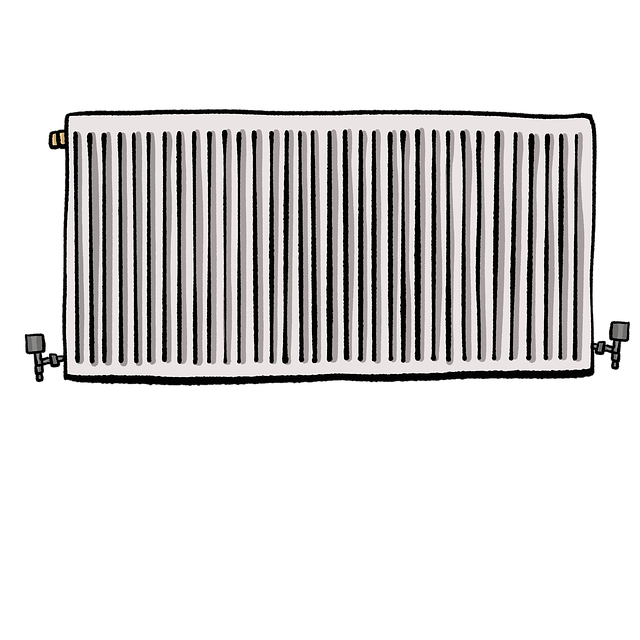Identifying central heating pipe leaks' sources is key to efficient repair, saving cost and system damage. While temporary fixes like tape or caulk are quick, long-term solutions focus on root cause repair, such as boiler replacement or heat exchanger fixing. Preventative measures include regular maintenance, inspections for damage or corrosion, and professional servicing from emergency plumbers Bromsgrove. Best practices like flushing radiators and monitoring pressure levels further reduce leak likelihood and extend system lifespan.
Tired of chilly spots in your home despite a functioning thermostat? You might be dealing with a central heating pipe leak. This guide will help you fix those leaks without replacing your entire system. We’ll walk you through identifying problem areas, implementing temporary fixes and long-term solutions, and maintaining your pipes to prevent future leaks. Discover expert tips for effective central heating repair and keep your home cozy all year round.
- Identify Leak Sources: Trace & Visualize the Problem
- Repair Strategies: Temporary Fixes & Long-Term Solutions
- Prevent Future Leaks: Maintenance Tips & Best Practices
Identify Leak Sources: Trace & Visualize the Problem

To fix central heating pipe leaks without replacing the entire system, the first step is to identify the leak sources. Start by tracing the pipes visually, noting any signs of damage or corrosion. Check for common problem areas like joints, fittings, and valves, where leaks often originate. Use a solution of water and dish soap to help you spot leaks; bubbles will indicate moisture in the pipe. Once you’ve visualized the issue, inspect the surrounding area for potential causes.
It could be as simple as loose connections or damaged insulation, but it might also point towards more serious issues like rusted out joints requiring boiler repair or heat pump replacement cost considerations. In residential central heating solutions, identifying and addressing leak sources promptly is crucial to maintain optimal efficiency and avoid further damage.
Repair Strategies: Temporary Fixes & Long-Term Solutions

When it comes to fixing central heating pipe leaks, there are both temporary fixes and long-term solutions that can help extend the life of your system without the need for a full replacement. For quick relief from leaks, a common temporary fix involves using tape or caulk to seal the affected areas. This is a fast and easy solution but only provides a short-term patch, as these materials may not withstand prolonged exposure to water and heat.
Longer-lasting repairs focus on identifying and addressing the root cause of the leak. For instance, if the issue lies with an old or damaged boiler, a boilermaker vs. HVAC technician might recommend repairing or replacing it rather than merely patching up leaks. Similarly, fixing a broken heat exchanger can significantly enhance the efficiency and longevity of your central heating system. While these solutions may require more time and investment, they offer substantial benefits in terms of durability and energy savings over the long term.
Prevent Future Leaks: Maintenance Tips & Best Practices

Preventing future leaks is key to saving costs and ensuring your central heating system runs smoothly. Regular preventative maintenance for heating systems is essential; this includes routine inspections and cleaning. Check for any signs of damage or corrosion on pipes, especially at joints and fittings, as these are common areas for leaks to occur. A simple inspection can often prevent a costly central heating breakdown.
To keep your system in tip-top shape, consider hiring an emergency plumber Bromsgrove for professional servicing. They can offer valuable advice on the best practices for maintaining your specific system, such as flushing and sealing radiators regularly, and checking pressure levels. By implementing these measures, you’ll reduce the likelihood of leaks and extend the lifespan of your central heating system.
Leaking central heating pipes can be a common issue, but with the right approach, you can fix them without replacing your entire system. By understanding leak sources and implementing either temporary fixes or long-term solutions, homeowners can effectively address and prevent future central heating repairs. Regular maintenance and adherence to best practices will ensure your heating stays efficient and reliable for years to come.
